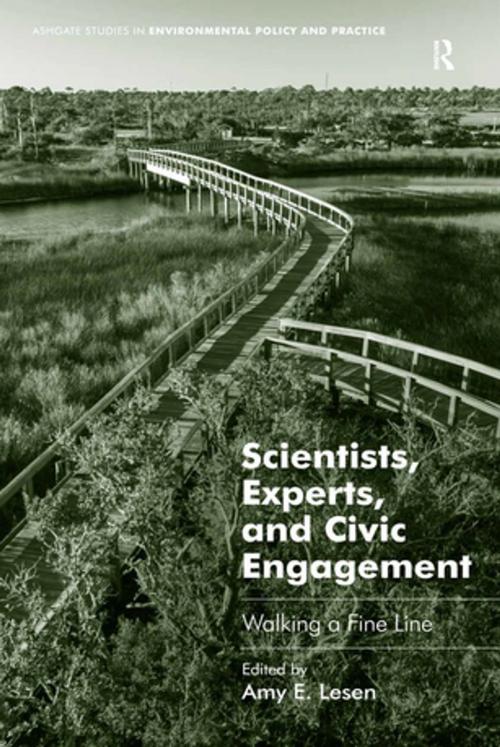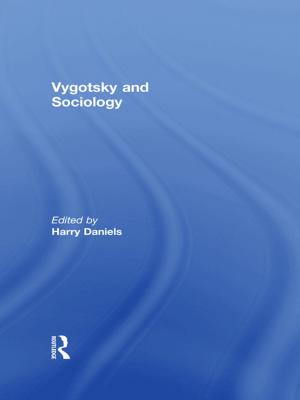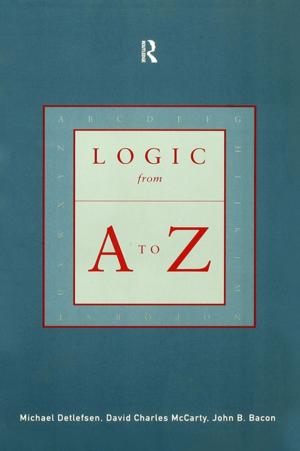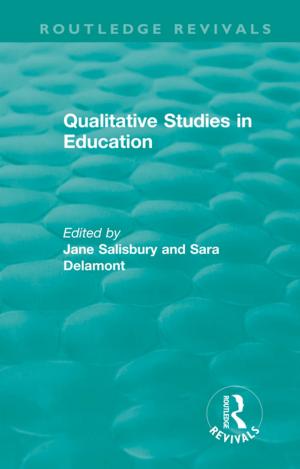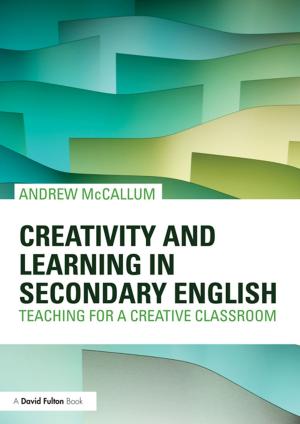Scientists, Experts, and Civic Engagement
Walking a Fine Line
Nonfiction, Science & Nature, Science, Biological Sciences, Environmental Science, Social & Cultural Studies, Political Science, Government, Public Policy| Author: | Amy E. Lesen | ISBN: | 9781317058779 |
| Publisher: | Taylor and Francis | Publication: | April 1, 2016 |
| Imprint: | Routledge | Language: | English |
| Author: | Amy E. Lesen |
| ISBN: | 9781317058779 |
| Publisher: | Taylor and Francis |
| Publication: | April 1, 2016 |
| Imprint: | Routledge |
| Language: | English |
How do scientists, scholars, and other experts engage with the general public and with the communities affected by their work or residing in their sites of study? Where are the fine lines between public scholarship, civic engagement, and activism? Must academics 'give back' once they collect data and publish results? In this volume, authors from a wide range of disciplines examine these relationships to assess how they can be fruitful or challenging. Describing the methodological and ethical issues that experts must consider when carrying out public scholarship, this book includes a checklist for critical factors of success in engagement and an examination of the role of digital social media in science communication. Illustrated by a range of case studies addressing environmental issues (climate change, resource use, post-disaster policy) and education, it offers an investigation into the levels and ways in which scholars can engage, and how and whether academics and experts who engage in community work and public scholarship are acknowledged and rewarded for doing so by their institutions. Also bringing into the debate the perspective of citizens who have collaborated with academics, the book offers an exploration of the democratizing potential of participatory action research.
How do scientists, scholars, and other experts engage with the general public and with the communities affected by their work or residing in their sites of study? Where are the fine lines between public scholarship, civic engagement, and activism? Must academics 'give back' once they collect data and publish results? In this volume, authors from a wide range of disciplines examine these relationships to assess how they can be fruitful or challenging. Describing the methodological and ethical issues that experts must consider when carrying out public scholarship, this book includes a checklist for critical factors of success in engagement and an examination of the role of digital social media in science communication. Illustrated by a range of case studies addressing environmental issues (climate change, resource use, post-disaster policy) and education, it offers an investigation into the levels and ways in which scholars can engage, and how and whether academics and experts who engage in community work and public scholarship are acknowledged and rewarded for doing so by their institutions. Also bringing into the debate the perspective of citizens who have collaborated with academics, the book offers an exploration of the democratizing potential of participatory action research.
